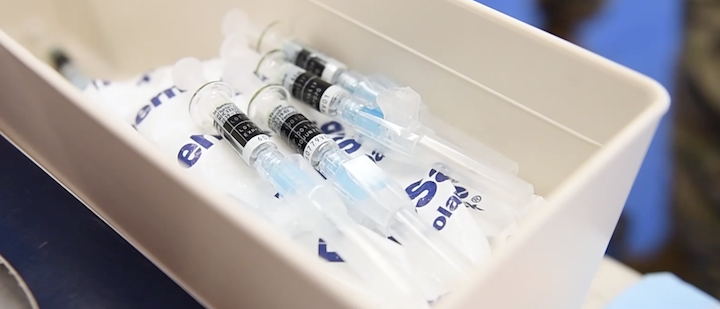Q&A on Coronavirus Vaccines

In the more than eight months since the novel coronavirus emerged and then spread around the world, scientists across the globe have made rapid progress on developing a COVID-19 vaccine.
As of Sept. 3, at least 176 vaccines are in the works, with nearly three dozen already in clinical trials, according to the World Health Organization. But until a vaccine is tested in large numbers of people and weighed against a placebo, scientists won’t know if one or more vaccines are safe or effective.
Here, we give an overview of the vaccine development efforts underway and answer some questions about the testing process, the likelihood and timing of a vaccine in the U.S., and what to expect from a COVID-19 vaccine.
How likely is it that there will be a COVID-19 vaccine?
Very likely. Every expert we contacted was confident that there would be a COVID-19 vaccine, although details beyond that are uncertain.
 “We should get something that can induce immunity to the virus,” said Dr. Stanley Perlman, a coronavirus researcher at the University of Iowa, in a phone interview. “The challenge, though, is knowing whether the immunity is long-lasting. And how protective it’ll be.”
“We should get something that can induce immunity to the virus,” said Dr. Stanley Perlman, a coronavirus researcher at the University of Iowa, in a phone interview. “The challenge, though, is knowing whether the immunity is long-lasting. And how protective it’ll be.”
“I’m fairly confident we will have several COVID-19 vaccines because the technical hurdles for making a COVID-19 vaccine are not that steep,” Dr. Peter Hotez, the dean of Baylor College of Medicine’s National School of Tropical Medicine, told us, adding that researchers know to target the so-called “spike” protein on the outside of the virus.
“This is sort of an old school problem in virology, and we have several vaccines where we’ve done this in the past,” he said, “so I’m pretty confident we will have not just one but probably several COVID-19 vaccines.”
Dr. Paul Offit, a vaccine expert and pediatrician at Children’s Hospital of Philadelphia, told us he was “very confident” there would be a vaccine, and likewise said he thought there would be more than one.
As he has before, Dr. Anthony Fauci, a coronavirus task force member and director of the National Institute of Allergy and Infectious Diseases, cautioned in July 31 congressional testimony that “there’s never a guarantee that you’re going to get a safe and effective vaccine.”
But, he added, the signs so far are
You’re reading a preview, subscribe to read more.
Start your free 30 days





